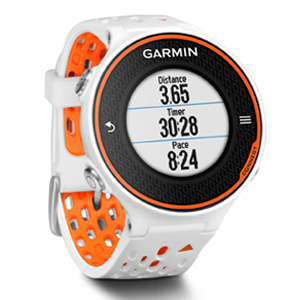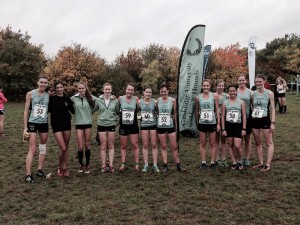One of the things I love about running is the simplicity of it – all you need is a pair of trainers, a t-shirt, some shorts and you are off. It really is the leveller of all sports, available to everyone without all of the expensive kit of many other activities. However, it seems to me that the no fuss, simple nature of putting one foot in front of the other is gradually being eroded as technology enters into the running world.
Some of the advances in running equipment are definitely advantageous – I make near daily use of technical t-shirts and other items of specialised clothing and virtually never run without my padded running socks. I don’t know how much difference all of this makes but there certainly is something to be said for wearing clothing designed to aid circulation and aeration when running. I also have no problem with most of the advances in footwear, although I am yet to properly buy into the idea of barefoot running. Running can certainly be done without several different pairs of shoes and, until a couple of months ago; I did all of my training in trainers. However, once your enthusiasm for running goes beyond a certain level, investing in lighter weight flats can help when doing interval sessions and spikes or trail shoes are essential if you plan on racing cross country. Equally, all the different equipment designed to aid recovery and injury prevention is useful no matter how much running you are doing. Specially designed items such as foam rollers are very useful but it doesn’t even need to be that complicated – a tennis ball, a golf ball or simple stretches can be equally as effective.
The area of technological advance within running that I have a problem with is the exponential growth in the use of wearable technology. I don’t have a problem with this technology per-se; it is more the use to which people put these items. I do own a Garmin running watch and, at times, I find it useful. I will wear it when racing a 10k or a half marathon to help me with my pacing but that is about the only time I will ever measure my pa ce. I also use the watch when I set out to run a certain distance or if I need to measure out the length of an interval in training. However, I never wear a watch when running a cross country race and don’t measure my pace when doing intervals. I run as fast as I can and I don’t need a watch to tell me that! I feel no need to constantly measure my pace, track everything I do or log everything onto the running website Strava (in actual fact I don’t even have a Strava account and am not tempted to start one). I also don’t own a heart rate monitor and have no intention of getting one.
ce. I also use the watch when I set out to run a certain distance or if I need to measure out the length of an interval in training. However, I never wear a watch when running a cross country race and don’t measure my pace when doing intervals. I run as fast as I can and I don’t need a watch to tell me that! I feel no need to constantly measure my pace, track everything I do or log everything onto the running website Strava (in actual fact I don’t even have a Strava account and am not tempted to start one). I also don’t own a heart rate monitor and have no intention of getting one.
To many of you this will sound like a form of heresy – I have heard several friends say, albeit jokingly, that if a run is not logged on Strava then it didn’t happen and doesn’t count. I certainly know people who say they feel ‘naked’ if they head out for a run without their watch on. They extol the virtues of running watches and heart rate monitors and I
can see that they do have their uses with watches allowing you to regularly monitor your performance and a heart rate monitor can help to identify illness early. However, while this can be beneficial, to my mind this desire to log and track everything has gone too far and is harming the ability to enjoy the basic act of running.
If you are constantly monitoring yourself, checking your performance compared to yesterday or last week, the pure and simple joy of running for its own sake is gone. My favourite runs of the week are when I head out for six or seven miles of steady running (with no watch). I just run how I feel and enjoy what I am doing.
Wearable technology can be useful and has a role in training but, in my opinion, the obsession with logging absolutely everything has gone too far. Running is one of the simplest and purest things you can do but this is being diluted behind the computer screens filled with stats and data.
See you soon!
Liz
